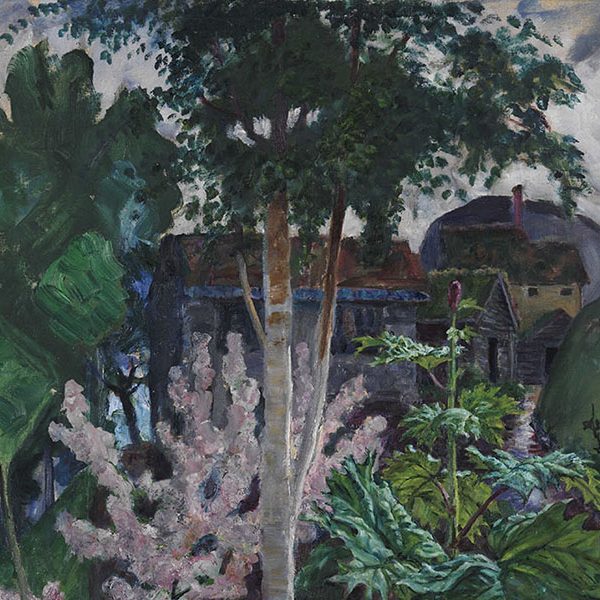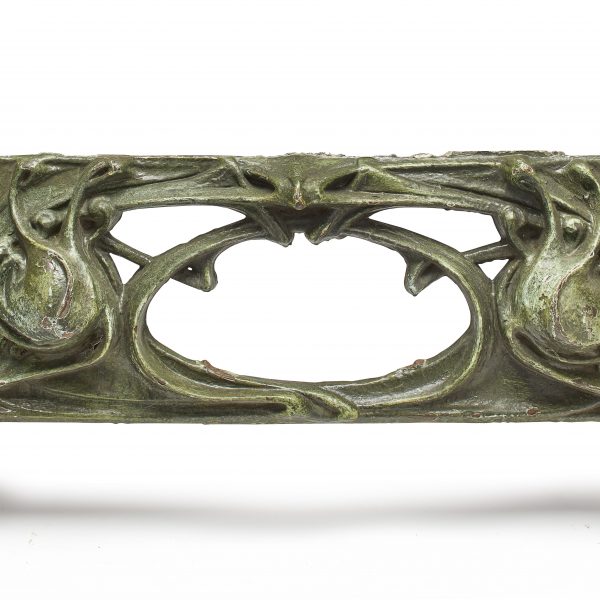For the Prolific Writer of Letters
If there is one thing more depressing than reading other people’s old letters it is reading one’s own. – The Letters of T.S. Eliot, Volume 3: 1926-1927
 Volume 3 of The Letters of T.S. Eliot picks up where the first and second volumes left off, chronicling the years 1926-1927, a period which Eliot himself described as being “like a bad Russian novel.” The second volume had ended with the separation of Eliot and his first wife, Vivienne, due in part to the latter’s suffering of physical and mental ailments. Hospitalized at the Sanatorium de la Malmaison in Paris, Vivienne wrote a series of frenzied and paranoid letters to Eliot, many of which are featured in the first few pages of the volume. She writes of being “taunted […] all the time with my commonness, my lowness, my hoarse voice, my unfitedness [sic] to be the wife of a decent man,” subsequently accusing Eliot, “You, with your head in the air, in your splendid isolation are leaving yr wife to be most vilely and cunningly ruined.” Seeking to escape the distress of his daily life, Eliot retreated into his work.
Volume 3 of The Letters of T.S. Eliot picks up where the first and second volumes left off, chronicling the years 1926-1927, a period which Eliot himself described as being “like a bad Russian novel.” The second volume had ended with the separation of Eliot and his first wife, Vivienne, due in part to the latter’s suffering of physical and mental ailments. Hospitalized at the Sanatorium de la Malmaison in Paris, Vivienne wrote a series of frenzied and paranoid letters to Eliot, many of which are featured in the first few pages of the volume. She writes of being “taunted […] all the time with my commonness, my lowness, my hoarse voice, my unfitedness [sic] to be the wife of a decent man,” subsequently accusing Eliot, “You, with your head in the air, in your splendid isolation are leaving yr wife to be most vilely and cunningly ruined.” Seeking to escape the distress of his daily life, Eliot retreated into his work.
In these two years, Eliot wrote little poetry, producing only a segment of the verse drama Sweeney Agonistes and the first of his Ariel poems, Journey of the Magi. But he was not one who would measure poetic achievement by the number of poems written, as evinced by his advice to a young poet: “[…] remember that it is not merely the time you spend with pen and paper but is as much, or more in fact, that you always keep a corner of your mind working on poetry, more or less unconsciously, (a sort of continuous chemical process of transformation of sensations, emotions and ideas into poetical material) that makes all the difference.”
What records we do have in copious amounts from that period of Eliot’s life, however, are his letters, and this explains the sprawling length of the book, which stands at more than 900 pages of text and notes. His correspondence with friends and mentors compellingly illustrates the development of his artistic career, the continuing anxieties of his private life, and the forging of his public reputation. While Eliot comes across at times as a distanced writer, who has more correspondents than he does confidants, there are nonetheless revealing moments in the book, such as in this letter to his mother in 1927, whose health was failing rapidly:
“Dearest mother, your letter made me very sad; you speak as if you would perhaps never see me again either here or elsewhere […] although I am sure of seeing you at least once more in this life, yet as either of us, or anybody, might suddenly be taken away by some accident, I should like to feel that you felt sure as I do of our meeting again […] whenever I have done anything that the world has thought good, or that the world is likely to think good for a generation or two after I am dead, I have always felt that it was something that you and I did together, or even something that you had dreamt of and projected before I was born. I often feel that I am merely a continuation of you and Father, and that I am merely doing your work for you.”
Because he was known for being a deeply private figure, emotional and unguarded moments such as these are a rare opportunity for us to round out our understanding of the man, glimpsing through the detached tone and carefully selected words the intimate thoughts of one of the greatest figures in English literature.




